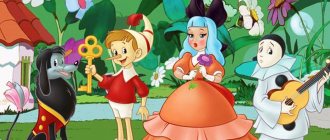Quiz questions with answers
For the quiz, we divided these questions into sections based on different topics, such as world geography, history, fashion, pop culture or music. Take your fun with these questions to the next level and make your quiz fun.
25 questions for a quiz on various topics
These questions will test your general knowledge. How many of the 25 questions do you think you can answer correctly in this part of the quiz? Test yourself!
- In what year did the European Union first introduce the euro as a currency? (1999) (You can formulate your questions by reading some facts about European countries)
- What is the national flower of Japan? (Sakura)
- How many stripes are on the US flag? (13)
- What is the national animal of Australia? (Red Kangaroo)
- How many days does it take for the Earth to revolve around the Sun? (365)
- Which of the following empires did not have a written language: the Incas, the Aztecs, the Egyptians, the Romans? (Inca)
- Before 1923, what was the name of the Turkish city of Istanbul? (Constantinople)
- Who discovered penicillin? (Alexander Fleming)
- In 1952, Albert Einstein was proposed as president of which country? (Israel)
- Which lake is often called the pearl of Italian lakes? (Lake Como)
- Where is the smallest bone in the human body? (Ear) (We are sure that you do not yet know some interesting facts about the human body and organism).
- What is the name of the capital of the American state of California? (Sacramento)
- Which is longer, a nautical mile or a geographical mile? (The geographical mile is longer, its length is 1855.3 m compared to the sea mile at 1852 m)
- Which element is represented by the chemical symbol Sn in the periodic table? (Tin)
- What grain is Japanese sake made from? (Rice)
- What is the currency of Denmark? (Crown)
- What is the opposite of matter? (Antimatter)
- In what part of your body will you find the cruciate ligament? (Knee)
- How many elements are there in the periodic table? (118 elements)
- Which Grand Slam tennis tournament is played on clay? (French Open (Roland Garros))
- What is the name of the person who started eBay in 1995? (Pierre Omidyar)
- What does "www" mean in a website browser? (The World Wide Web)
- How many permanent teeth does a dog have? (42 teeth) (Read more interesting facts about dogs)
- What animal can be seen on the Porsche logo? (Horse)
- Which language has the most words? (English, more than 1,000,000 words)
Funny interview questions
Many people know what it’s like to be interviewed for a job, especially if the questions are far from the standard “Why did you choose us?” What are the funniest interview questions? Here are examples of different specialists:
- How to use a stapler in a non-standard way?
- What do you think about garden gnomes?
- How would you solve problems if you came from Mars?
- Why are the hatches round?
Funny Interview Questions: Pexels
According to the humorous Twitter account @whiletruegoto, IT professionals may face questions such as:
- What is the complexity of the algorithm for twisting a light bulb using seven programmers?
- Your resume states that your last position was delivery manager... Did you deliver pizza or something?
- How do you prefer to play planning poker - for money or for stripping?
- Do you buy insurance in case your code fails in production?
- Do you keep your stash in cookies?
- How often do you say “Please…” to your code?
- Have you been accused of trying to program before?
- Do you agree that an admin should have a beard, even if he is a woman?
The position will provide an original answer to such a question from the employer. Be prepared for the unexpected.
Questions for a quiz on the topic “planets of the solar system”
Are you a solar system expert? Can you name two planets that rotate in the opposite direction from the others? Read the multiple choice questions to test yourself and learn interesting facts as you play.
1). How many moons does Mars have?
Options: 13 / 2 / 50 / 1.
Answer . Mars has two satellites, Phobos and Deimos.
2). The largest volcano in the solar system is called Mount Olympus. Where is he located?
Options : Jupiter / Earth / Venus / Mars.
Answer . Mount Olympus, the largest volcano in the solar system, is located on Mars. The height of the volcano is 26 km from the base, the diameter is about 540 km.
3). Which planet is closest to the Sun?
Options : Earth / Venus / Mercury / Neptune.
Answer . Mercury is the planet closest to the Sun.
4). What is the Great Red Spot on Jupiter?
Options : volcano / lake / storm / crater.
Answer . The Great Red Spot is a violent storm in Jupiter's atmosphere.
5). What is the Sun mainly made of?
Options : liquid lava / molten metal / gas / stone
Answer . The sun is primarily composed of two gases: hydrogen and helium.
6). What are comets mainly made of?
Options : poisonous liquid / ice and dust / rusty metal / molten stone.
Answer . Comets are mostly made of ice and dust.
7). To which planet do the satellites Oberon and Titania belong?
Options : Jupiter / Uranus / Venus / Earth.
Answer . Oberon and Titania are two of Uranus' 27 moons.
8). Which option best describes the atmosphere surrounding Venus?
Options : bright and sunny / cold and snowy / cold and wet / hot and poisonous.
Answer . Venus is surrounded by acidic clouds, and its average surface temperature can reach 735 K (462 °C). Therefore, the most appropriate description of the atmosphere of Venus is hot and poisonous.
9). Where is the asteroid belt?
Options : between Jupiter and Saturn / Earth and Venus / Mars and Jupiter / Earth and Mars.
Answer . The asteroid belt is located in the region between the planets Mars and Jupiter.
10). Which of these planets is the smallest?
Options : Jupiter / Uranus / Earth / Mercury.
Answer . Mercury, its width is 4879 km.
eleven). Which two planets rotate in the opposite direction from the others?
Options : Uranus and Venus / Venus and Pluto / Mercury and Jupiter / Earth and Neptune.
Answer . Uranus and Venus
What were your favorite three solar system quiz questions?
Google's funniest questions
Google knows everything! This search engine processes many requests every day. What are the funniest Google questions? Here's what Internet users want to know:
- What should I do if my toilet is dancing?
- Why did I get drunk yesterday?
- How to become a princess?
- How to call from a mobile phone to the afterlife?
- How many hamsters does it take to get a good fur coat?
- Why did God create woman?
- How to open a can of sprats with two spoons and a slipper?
- Atheist - what kind of stone?
- Why did I open Google?
- How to get a cat out of the microwave?
- How beautiful am I?
- How to make an atomic bomb at home?
- Do penguins have knees?
- How do I get home?
As soon as you enter the first couple of words of your query into the search, the system gives original hints. This means that these issues are really relevant for users.
Questions for the quiz “What do we know about Russia”
Have you ever wondered how much you know about Russia and its history? Read these Russia quiz questions and answers to test yourself and learn some interesting information along the way.
- How many time zones are there in Russia? (eleven)
- What color is the top color of the tricolor flag of Russia? (The Russian flag consists of three horizontally equal fields: the top white, the middle blue and the red bottom)
- Who became General Secretary of the Communist Party after the end of Leonid Brezhnev's 18-year rule? (Yuri Andropov)
- Can you name the largest island in Russia? (Sakhalin)
- Which mountain range runs from north to south through western Russia? (Ural)
- Total number of republics in Russia? (22 republics)
- Which of the Russian republics is the largest in area? (Republic of Sakha, 3083523 km². This is 18.01% of the total area of the country)
- In what year did the collapse of the Soviet Union happen? (In 1991)
- Which freshwater lake in Russia is the largest in the world? (Lake Baikal contains more water than the Great Lakes of North America combined)
- The name of which Russian newspaper is translated as “pravda”?
- Which river is considered the national river of Russia? (Volga)
- Can you name the highest mountain in Russia? (Mount Elbrus is the highest mountain in Europe).
- What Russian three-stringed musical instrument features prominently in the music and plot of the film Doctor Zhivago? (Balalaika)
- Can you name the Russian exclave between Lithuania and Poland on the Baltic Sea? (Kaliningrad)
- Who is considered the founder of the modern Russian literary language? (A.S. Pushkin)
- Which composer wrote the first opera known in Russia, “A Life for the Tsar,” in 1836? (Mikhail Glinka)
- One of the largest museums in the world, which is located in Russia, what is it called? (Hermitage Museum)
- What Russian word means “fortress in the city”? (Kremlin)
- Who was the first Russian to receive the Nobel Prize in Literature? (Ivan Bunin)
- Which university is the oldest in Russia? (St. Petersburg State University)
The funniest questions to ask a girl
It’s useful for guys to know how to spice up the evening and make their beloved smile. What are the funniest questions to ask a girl? Choose from these options:
- What type of transport is better to get to work - donkey or donkey?
- Do you only drink diet water?
- Why do people call a chicken a stupid bird and a pugnacious rooster an animal?
- Why the platypus and not the duckbill?
- What is the opposite of "opposite"?
- If animals can speak, then what kind of speech can be considered rude?
- Why do girls in trousers look normal, but guys in skirts don't?
- Why is chocolate not considered a vegetable if it is made from cocoa beans?
- What would the name of a superhero's wife be - Batman, Spider-Woman, Flash?
- What color is a confused chameleon?
- Why are bagels made with holes?
- Why do cellophane bags always have trouble opening?
- Can a broken escalator be called a staircase?
- Have you ever been chased by an ice cream truck?
- What is the name of a man's dance in front of the toilet?
“A sense of humor is one of the highest signs of intelligence and personal health,” says psychologist Alena August. Funny questions will help you get to know each other better and fill the meeting with pleasant emotions.
Biography
33. Where did you live before? How is that city different from your current place of residence? 34. As a child, what did you want to be when you grew up? 35. Do you have any hidden talents or unexpected hobbies? 36. What did you like to do in elementary school (outside the school curriculum)? 37. What accessory or item was your “must-have” in childhood/teenage, i.e., growing up? 38. What was the most incredible thing that has ever happened to you? 39. Who was the most significant person, mentor, role model for you? 40. What was the most valuable piece of advice you've ever been given?
Questions about love, family and friendship
It is a similar view of family values and friendship that determines the longevity of a relationship. These questions will open your eyes to many nuances that you didn’t even know about.
Man and woman
- What is a stumbling block for you in a relationship?
- Could you take back someone who committed treason?
- Would you share your password with your partner?
- When do you think a person is ready to get married?
- How will you react if your parents don't like your chosen one?
- Do you usually stay friends with your exes?
- When was the last time you broke someone's heart?
- Could you move for love?
- What do you think about online dating and Tinder?
- Do you think quarrels are sometimes necessary or should there always be an idyll?
Love and money
- Can you fall in love with a very fat person if he is rich?
- How do you feel about relationships for money?
- Are you ready to support your soulmate?
- Should both people in a couple earn the same amount or is it not important?
- Should the budget be shared or does everyone pay only their own expenses?
- What is better: “heaven in a hut” or a marriage of convenience?
- A comfortable life or true love – what will you choose?
- Is it possible to start a family if both are unsteady on their feet?
- Will you be comfortable if the chosen one is much richer than you?
Love and children
- What kind of parent do you think you will be?
- How do you feel about abortion?
- How much does it cost to have a child?
- How many children do you want?
- Can you raise someone else's child?
- Will you live with an unloved person just because of the child?
Love and sex
- How do you feel about explicit messages with photos?
- What is acceptable for you in intimacy?
- Are you ready to support what your chosen one offers, if you haven’t tried it before?
- Have you ever been in a loveless relationship?
- Do you believe in love or do you think it's just attraction?
Your relationship
- Who is the person you can talk to about literally anything?
- Could you tell me if you killed a person?
- Who would you invite with you if you decided to do something illegal?
- What sometimes irritates you about me?
- What's your favorite way to spend time with me?
- Is it easy for you to communicate with me, do you get emotional relief?
- What do you think we have in common?
- Do you like my friends?
- Do you want us to be friends for life?
BLITZ TOURNAMENT 2
Consonance of the ends of poetic lines Rhyme Flew into space along with the arrow Squirrel School room Class Having the right to make a mistake only once. Sapper Cowboy competitions Rodeo Place for secret meetings Appearance In ancient Rus': farmer Smerd Bread drink Kvass Flower for September 1 Astra Housing for a watchdog Booth Hunter against the law Poacher Ice crust on the snow Nast Billiard gate Pocket Unexpected gift Surprise Bioenergetic shell of a person Aura Artillery shell, sneaked into sports Core Closed, hidden valuables Treasure Insect - a symbol of hard work Ant Circus comedian Clown Second copy of the document Copy.
Questions for intellectual quizzes - 89
1. It has been experimentally established that large bubbles of methane rising from the ocean floor significantly reduce the density of water. This fact, along with infrasound and traveling waves, is sometimes cited as one explanation for this mystery. What kind of mystery are we talking about?
2. The ancient Indians believed that six people do not remember those who helped them before: a student - a teacher, a married son - a mother, a husband who has fallen out of love - a wife, a guide who got out of the thicket, a sick person - a doctor. And who does not remember who achieved the goal?
3. When the poem “Moscow - Cockerels” was published as a separate book, at the request of the author Venedikt Erofeev, the price was set at 3 rubles 62 kopecks. Why?
4. Ranevskaya told her friends about her visit to the doctor: “Here are your sleeping pills, Faina Georgievna, this will be enough for you for six weeks.” - But, doctor, I wouldn’t want to...! Complete Ranevskaya's answer.
5. French scientists have found that on average a man eats 5 kg of this product during his life. Although the product itself is inedible, the process of eating it is beneficial to health. What is the name of this product?
6. She is rest for the weary, daylight for those who are discouraged, a ray of sunshine for the sad, and also the best antidote nature has created for troubles. And yet it cannot be bought, it cannot be begged, it cannot be borrowed or stolen, since it in itself is good for nothing until it is given away.
7. Shoemaker James Smith came up with something in 1792 that dramatically changed the production, and most importantly, the sale of shoes. His invention has benefited us all to this day. What kind of invention is this?
8. Now this is the name of a popular film collection. Previously, this Turkish word meant a mixture of a wide variety of sweets. Name this word.
9. One of the jokes states that “if a musician plays poorly, they give him two sticks and call him a drummer.” What happens if he continues to play poorly?
10. To prevent wild animals from getting into barns to store their prey, Ural aboriginal hunters often erected these structures on two pillars. In the barn itself there was a wooden carved doll dressed in national clothes. What word was this doll called?
Answers
1. About the mystery of the Bermuda Triangle. 2. The one who helped him achieve this goal 3. At that time, that’s how much a bottle of vodka cost. 4. Sleeping for so long 5. Lipstick. 6. Smile. 7. Shoe sizes. 8. Yeralash. 9. One is taken away from him, and he becomes a conductor. 10. Baba Yaga.
Yoga for the brain
Rules of the game
The presenter asks 3 tricky questions to each team member. The participant’s task is to answer quickly (up to 10 s), without discussion with the team. The peculiarity is that the presenter counts points according to this principle
- For the correct answer - 2 points
- For a funny answer - 1 point
- And for an interesting and unusual answer, the presenter can count on his own - 0.5 points
The questions are divided into categories, but they can be asked intermixed, it’s at your discretion. Accordingly, the team or player with the most points wins.
Trips
25. Is there a “heavenly” place to relax somewhere nearby? 26. If you could fly anywhere absolutely free, where would you go? 27. What's the coolest road trip you've ever taken? 28. What trip did you take during your last vacation? What were you doing there? What do you remember? 29. What type of holiday do you prefer - active or relaxing somewhere on a cozy beach? 30. What next trip have you already planned? 31. If you were able to take time off, or had the opportunity to work remotely, where would you go and what would you do? 32. What is your favorite thing to do on the weekend?
Food
17. If you were told that you could only eat one food for the rest of your life, what would it be? 18. What is the strangest dish you have ever tried in your life? 19. What is your comfort food? 20. Is there any food that you will never eat? 21. Advise what can be easily and without problems taken to work/school as lunch, but it should not be sandwiches. 22. Where can you eat inexpensively here? 23. Do your family have any culinary secrets or traditional recipes? 24. What is your favorite restaurant/cafe that is not very well known to a wide circle of people?
The most interesting questions with very informative answers (25 photos)
A selection of interesting questions, the answers to which make the world around us clearer and more interesting.
1.How long did it take dinosaurs to grow?
Tens of years. Rapid growth occurred before the onset of puberty, and then slowed down. Thus, Albertosaurus, 9 m long and weighing up to 1.7 tons, became an adult by about 16 years (many skeletons of Albertosaurus of different ages are known). It is estimated that the largest lizards took 40–50 years to reach maturity.
2.Why are matches called Swedish?
They were invented by a Swede. Since the 1830s, matches whose heads contained white phosphorus were produced in France and Germany. This substance is extremely poisonous and chemically very active, so the matches could ignite from friction right in the box. Professor of the Swedish Carolingian Institute Gustaf Erik Pash in 1844 proposed removing phosphorus from the heads and applying it to a special grater on the box.
And besides, he replaced white phosphorus with red, which is less dangerous. This is how matches became “Swedish”.
3.What is the nature of hiccups?
It has been established that hiccups occur due to periodic contraction of certain respiratory muscles located in the chest and diaphragm. But what function it performs in the body is still unknown to science. Most often, hiccups occur in response to some kind of irritation of the stomach, when a signal goes through the vagus nerve (vagus) to the brain, and from it along the phrenic nerve (phrenicus) goes to the diaphragm, causing its contraction, that is, hiccups.
As a rule, hiccups occur if a person has not eaten for a long time or chewed food poorly, as well as when drinking a large amount of liquid. It can also be a consequence of nervous shock or general hypothermia of the body.
In principle, periodically occurring and quickly passing hiccups are not dangerous for the body, but if it becomes painful and a person cannot get rid of it for a long time, then this may be a sign of a serious internal disease.
4.How does the ISS avoid meteor showers?
No way. Meteor showers arise from the disintegration of comets orbiting the Sun. The width of these flows is hundreds of times greater than the diameter of the Earth, and it is impossible to avoid them. But they do not pose a big threat, since there are few particles in them. The rarest large stones still cannot be detected in advance, and the station is protected from microscopic dust particles by Whipple shields. This is, simply put, a foil surrounding the body, upon collision with which dust particles instantly evaporate.
The ISS has to avoid artificial near-Earth space debris. The wreckage of old rockets and satellites is monitored from Earth using locators and lasers, and for maneuvering the ISS uses the engines of the Progress and Soyuz spacecraft docked to it.
5.How much gold is in an Olympic gold medal?
According to the standard, 6 grams. But it was not always observed. The First Olympic Congress (1894, Paris) adopted the Olympic Charter, which also spelled out the rules for awarding winners. For 3rd place a bronze medal was awarded, for 2nd - 925 silver, for 1st - the same medal, only coated with 6 grams of gold.
But they deviated from the rule at the very first Olympics (1896). There, a medal was not awarded for 3rd place; for 2nd place the athlete received a bronze medal, and for 1st place a silver medal with minimal gold plating. At the second Games, the winners were awarded a rectangular bronze plaque coated with silver.
But in the fourth (1908), where for the first time not two, but three best athletes were awarded, the main award consisted entirely of gold. And although it seemed small, only 3.3 centimeters in diameter, it weighed 25 grams. Later, the medals became larger, but the share of gold in them decreased, although its weight did not fall below 6 grams. At the 1980 Moscow Olympics, the gold medal fully complied with the standard prescribed in the charter. At the next Games, the champion's medal already contained 6.5 grams of gold.
But the value of the Olympic medal is not measured by the cost of the metals included in it, which does not exceed $250. When Polish swimmer Otilia Jedrzejczak auctioned off her Athens gold medal in 2004, it fetched nearly $82,500.
6.What does “stoeros club” mean?
The same as uncouth. In the 19th century, it was believed that “stoerosovy” - from “growing while standing.” A later version raises this word to the numeral “one hundred” and the adjective “erokhovy” (“knotty”). “Stosuchkovaya” in this case means “uncouth.”
7.When will the Sun go out?
In approximately 5 billion years, the power of solar radiation falling on the Earth is 170 trillion kilowatts. This is 10,000 times more than what humanity uses in all forms, but 2 billion times less than the energy irretrievably dissipated by the Sun into space. According to the theory of relativity, any energy expenditure is associated with a loss of mass. Every second the Sun becomes lighter by 4 million tons. A mass equal to that of the Earth burns out in 50,000 years. How long can this wastefulness continue?
The energy of our star is produced in thermonuclear reactions of converting hydrogen into helium. Four hydrogen nuclei weigh 0.7% more than the helium nucleus that forms from them. This small difference, called a mass defect, translates into energy. Part of it is immediately carried into space by all-penetrating neutrinos. The rest of the energy turns into heat and heats the interior of the Sun to 14 million degrees. The enormous temperature maintains the pressure of the overlying layers of matter and ensures the occurrence of thermonuclear reactions.
But heat is constantly leaking out and radiating from the surface of the Sun. Every second, 600 million tons of solar hydrogen are converted into helium. But even with such a colossal consumption of hydrogen, there will be enough for 10 billion years, the mass of the Sun is so great. Almost half of this period is already behind us, which follows from the age of rocks, lunar soil and meteorites.
8. Is it possible to write a Russian name in Chinese or Japanese characters?
It is possible, but more often approximately. Chinese and Japanese hieroglyphs, as well as the Japanese alphabet, which is used to write foreign words, usually denote syllables rather than individual sounds. Japanese syllables usually end with a vowel, while Chinese syllables usually end with a vowel or -n/-n.
Therefore, Alexander Pushkin sounds in Japanese approximately like Arekusandor Pusikin, and in Chinese like Yalishanda Pusijin. If these languages lack some sounds inherent in Russian, they are replaced with relatively similar ones. So, Vladimir Lenin in Japanese is Urajimiru Renin. In Chinese, the sound “r” is replaced by “l”: Andrei Rublev - Andele Lubulefu.
9.Does a person have two hearts?
Yes, although extremely rarely. The heart arises from the fusion of two paired rudiments. If this process is somehow disrupted, each of the rudiments can develop into an independent heart. As a rule, an embryo with this feature dies even before birth due to circulatory disorders caused by the uncoordinated work of two hearts.
However, their owner can live to old age. In addition, in exceptional cases, cardiac surgeons transplant a donor heart into a patient not instead of their own, but in addition to it, so that the person continues to live with two hearts.
10.Why do moose shed their antlers?
As unnecessary. The exact answer to this question is unknown. The most plausible assumption comes from the fact that the antlers of elk and other deer serve only to attract females (as a signal that their owner is a full-fledged male) and as a tournament weapon. Outside the breeding season, the antlers are of no use.
Meanwhile, wearing such a heavy and bulky “crown” (the horns of a large elk can reach 180 cm in span and weigh up to 30 kg) makes it difficult to move through the forest and requires additional effort - which is especially inappropriate in winter, when the amount of food is limited, and wolves are almost completely switched for feeding on ungulates.
11.How did the Himalayas come into being?
200 million years ago, the Earth was a single supercontinent - Pangea. After a few more million years, due to tectonic drift of plates, it split into two fragments, which in the Mesozoic era were still divided into separate parts - prototypes of modern continents: northern - Laurasia, which gave rise to North America and Eurasia, and southern - Gondwana - South America, Australia, Antarctica, Africa (Arabia, Hindustan).
Continuing its movement, Hindustan, coming very close to Eurasia, began to crush the outskirts of the continent with monstrous force. Without strong continental platforms such as Central Asia and Siberia, Eurasia would have split into several parts.
As a result of this collision, the highest mountains on the planet appeared - the Himalayas and Tibet, which, by the way, still continue to grow, since the Hindustan plate is drifting even now. It is on the Himalayan ridge that the highest mountain in the world, Chomolungma (8,848 m), is located, as well as 11 other eight-thousander peaks.
12.Who created sambo wrestling?
In the 1920s, the Russian athlete Viktor Spiridonov organized the study of national types of combat techniques for the needs of special forces in the Dynamo society. At the same time, judoist Vasily Oshchepkov, who taught at the Moscow Institute of Physical Education, enriched Japanese wrestling with martial arts techniques of the peoples of the USSR. In the 1930s, with the merger of these two systems, sambo (“self-defense without weapons”) arose.
13.Why are there fires on oil rigs?
This burns associated petroleum gas. Along with oil, flammable gas comes out of the wells - a mixture of volatile hydrocarbons that were dissolved in oil at depth under high pressure. Associated gas can be collected and processed, but since it is usually scarce, this is not always cost-effective. It is not good to release it into the atmosphere in its pure form for environmental and safety reasons. Therefore, the gas is burned in flares.
14.How far do balloons inflated with helium fly?
For thousands of kilometers. Elastic balls, rising, inflate, since external pressure decreases with increasing altitude. This causes them to fly upward until they burst at an altitude of several kilometers. Balloons with an inextensible shell rise to a height where the air density is approximately equal to the density of helium in the shell, and then follow the wind.
But gradually the helium leaks out, and the ball descends. If at altitude the ball gets caught in the jet stream, it can fly thousands of kilometers in an easterly direction. Thus, in 2006, a balloon with a note launched in the UK was discovered almost a month later in Iraq.
15.How do mountain goats stay on steep cliffs?
Due to rock irregularities. The goats will not stay on a completely smooth wall. But they can stand on tiny rock ledges and even run along them. The hooves of goats are narrow, hard, and capable of spreading widely. Adjacent to them are soft, sensitive pads that partially cover the stone the animal stepped on and create additional traction.
Equally important are an exceptional sense of balance, precise coordination of movements and keen vision to see wall irregularities. If the stone on which the goat steps is too narrow, the animal immediately pushes off and jumps further. But the abilities of goats are not limited to this. In the southeast of Morocco, domestic goats even climb argan trees to devour its fruits, and get to the very top branches.
16. Is it true that newborns see the world upside down?
They hardly see it at all. The lens of the human eye, like any biconvex lens, according to the laws of physics, projects an inverted image onto the retina. The brain's ability to correct the image transmitted by the eye requires experience. It is now known that in the first weeks of life, infants cannot focus their vision and highlight the outlines of objects, so, in fact, they have nothing to “turn over”.
That is, at first the child does not distinguish between “top” and “bottom”, and then learns to perceive the top as the direction “towards the forehead”, and the bottom as “towards the mouth”, regardless of which parts of the retina the images of objects located above or below fall on From him.
17. Why does water, consisting of oxygen and hydrogen, not burn or explode?
Because it is a product of combustion. Water is the result of the combustion of hydrogen, that is, its combination with oxygen. This reaction releases a large amount of energy, causing heating and, under certain conditions, a thermal explosion. The resulting water has already given up the heat of combustion of hydrogen and can no longer burn. But if, due to external energy, water is decomposed into hydrogen and oxygen (for example, by electrolysis), they will again be able to burn and explode.
18. Why didn’t Dmitry Mendeleev receive the Nobel Prize?
One might say, he didn’t have time. This prize has been awarded since 1901 either for recent work or for long-standing works, the significance of which was confirmed by new discoveries. The periodic table of elements was published in 1869, but at the turn of the century noble gases were discovered, again confirming its validity.
A formal reason arose for the nomination of Mendeleev, which was done in 1905. But then Adolf von Bayer was preferred to the Russian scientist, perhaps because he had been “standing in the queue” of candidates for the fifth year. And in 1906, the prize was given to Henri Moissan, who was nominated for the sixth time. In 1907, Dmitry Mendeleev was nominated again, but he died that same year.
19.When did the “Farewell of the Slav” march appear?
In 1912. Military bandmaster and composer Vasily Ivanovich Agapkin created many musical works during his long life, but the most popular of them, of course, is the march “Farewell of the Slav”.
...In the fall of 1911, the dream of staff trumpeter Vasily Agapkin came true - he was accepted into the brass class of the Tambov Music School. And in 1912 the first Balkan War began. The heroism and courage of the Bulgarians who rebelled against Turkey and the victorious news from the front could not leave the Russian people indifferent, who more than once came to the aid of the oppressed Slavs. In the autumn of 1912, on a quiet Gymnasium street in Tambov, the march “Farewell of the Slav” was born.
To the sounds of this march, military echelons going to the front were escorted both to the First World War and to the Great Patriotic War. This patriotic music, created by a 28-year-old composer, has become loved by literally everyone. Many poets, including A. Fedotov, V. Maksimov, V. Lazarev, wrote poems for this march.
20. If most of the atom is occupied by emptiness, why don’t objects pass through each other?
Electron clouds do not allow each other to pass through. Although 99.9% of the mass of an atom is concentrated in a tiny nucleus, the space around it is not empty, but occupied by electrons. Their mass is negligible, but the electric charge, which determines the interaction of atoms with each other, is equal in magnitude to the charge of the nucleus.
Heisenberg's quantum uncertainty principle says that elementary particles are not points, but rather clouds smeared in space, and the smaller their mass, the stronger, so electron clouds are thousands of times larger than atomic nuclei. And thanks to the so-called Pauli exclusion principle, electron clouds of two different atoms, as a rule, cannot occupy the same place in space.
Thus, the fundamental laws of quantum mechanics give matter “physicality”: the Heisenberg principle determines the size of atoms, and the Pauli exclusion determines their impenetrability.
21.Which engineering project is considered the largest?
The right to be considered a monument of engineering so far belongs to the giant water pipeline that supplies fresh water to the north of Libya. Construction of the “Great Artificial River,” as the water supply system is called, took 18 years, from 1983 to 2001.
The giant structure was erected over underground freshwater lakes discovered in the desert in the 1960s, the total volume of water in which is comparable to the volume of water in the Black Sea. The water pipeline stretches almost 2,000 kilometers from south to north, to the shores of the Mediterranean Sea, where most Libyan cities are located. Water enters a system of 1,300 wells located over an area of more than 13,000 km2. The depth of many of them reaches 500 meters.
Huge reservoirs with a volume of 4 to 24 million cubic meters have been built near cities. During the construction of the “Great Man-Made River”, about 155 million cubic meters of soil were removed from the ground - this is 12 times more than during the construction of the Aswan Dam. From the stones and bricks used, it would be possible to build 17 Cheops pyramids. And the wasted concrete would be enough for the road from Libya to China. 7 million cubic meters of water are pumped through the water supply every day.
According to scientists, underground reserves will last for about half a century. However, even earlier, the entire system may collapse under its own weight into underground voids that will form as water is pumped out. In any case, in a few decades it will be necessary to find a new source of fresh water. Perhaps the Libyans will build a desalination plant, which will be a new engineering marvel.
22. Why is the Universe filled with matter almost uniformly?
Because the matter expanded along with space. In a normal explosion, the matter scatters from one point. However, when applied to the birth of the Universe, the word “explosion” is only a metaphor. The substance did not fly away from a single point, but expanded simultaneously with space. In the first stages (strictly speaking, even before the Big Bang), this expansion proceeded so quickly that any inhomogeneity in the blink of an eye inflated to the size of the part of the Universe visible today.
This process is called the inflationary stage of the development of the Universe, or simply inflation. It ensured a uniform filling of space with matter. And only then this matter began to break up into clouds, from which galaxies and stars were born.
23.Do animals get bored?
As observations show, many animals experience discomfort when there is a long absence of new information and access to objects with which to play. Their behavior is reminiscent of the behavior of a bored person. The ability of animals to get bored is also evidenced by the fact that even adult animals devote a lot of time to games and suffer when deprived of this opportunity. This is most noticeable in monkeys, predators, as well as in a number of birds - corvids, parrots.
24.Can a black hole “get enough”?
It cannot. The mass of a black hole can theoretically grow indefinitely, but for this to happen, new matter must constantly flow into it from the surrounding space. Under normal conditions this is impossible, since the amount of matter near a black hole is limited. In addition, the hole can only attract those objects whose speed is too low to resist its gravity.
If, for example, we replace the Sun with a black hole of the same mass, then the Earth and other planets will not fall into it due to the high speed of their rotation. Now suppose that the black hole is in the middle of a rotating dust cloud. Then only that part of the dust grains will fall on it, whose speed is not high enough to “escape” from the powerful gravitational force of the black hole. The hole will, as it were, eat away the central part of the cloud, while its peripheral region will remain untouched.
Supermassive black holes have existed at the centers of most large galaxies for many billions of years, during which time they have already consumed most of the gas and stars available to them. Now almost all of them are on a starvation diet. The same applies to the black hole located in the center of our Galaxy. The most massive known black holes have a mass of more than 10 billion solar masses, while the hole at the center of our Galaxy is only 3–4 million.
Questions about the past
The past creates us in the present, which is why it is so important. Yes, people change, but not as quickly as we would like. Therefore, the one who betrayed once will repeat it again. Questions about the past will help you understand your friend and trace the connection between his present and past.
Childhood
- Have you ever kept a diary?
- Did you like going to kindergarten? What did you dislike the most?
- Was it easy to study at school?
- What changed you as a teenager?
- Who was your first love?
- Do you communicate with your classmates and school friends?
- Do you have Brother or sister? Are you a good communicator?
- If you were asked to change something about your childhood, what would you choose?
- What did you dream of becoming as a child?
- What were your hobbies, what sections and clubs did you attend?
Biography
- What was the best period in your life?
- What was the worst period in your life?
- Have you ever lost someone close to you?
- When did you feel the biggest adrenaline rush?
- Which of your parents are you closer to and why?
- What are you most grateful for?
- What did your last relationship teach you?
- What is your biggest regret in life?
Miscellaneous
41. If you were entrusted with choosing eight objects that would receive the status of “8 Wonders of the World,” what would you add to this list?
42. What would you put in a time capsule 15 years ago? 43. Which of all the compliments you have received was the strangest? 44. Have you ever thought about “cool” inventions or starting companies that, as it turns out, have already been made or founded? 45. If you could teach any course in college, what subject would you choose? 46. What is something completely out of character for you that you have ever done? 47. What superpower would you like to have? 48. If you could have absolutely any pet, which one would you choose? PS We recommend another useful article on the topic of working on yourself - 30 websites that will make you much more educated
The author of the translation is Vyacheslav Davidenko, founder of TESTutor
Job
1. If you didn’t work here, what would you most likely be doing now? 2. How did you become ... (job title)? 3. What surprised you most about this job? 4. What is the most ridiculous task your boss has ever given you? 5. What would be more preferable for you: working four days a week for 10 hours or five days for 8? 6. If you had guaranteed success in any position, what would you prefer to do? 7. What was your first job? Did you like her? 8. What is the most valuable piece of professional development advice you have ever received? Which one was the worst?
Entertainment
9. Are you reading any interesting book now? I would like some recommendations. What about the show? 10. Are there any apps on your phone that you can't live without? 11. If you could only watch one genre of cinema for the rest of your life, what would you choose? What about musical preferences? 12. Which book did you hate that everyone admired? And vice versa? 13. Do you have any podcast recommendations? 14. Which movie have you watched recently that made you cry? How about laughing out loud? 15. Who would you like to be your partner on the reality show Amazing Race? In our realities, you can ask a similar question about programs like “Fort Boyard” or “The Last Hero”. 16. Who is your Instagram favorite? And vice versa? Oh, you don't have Instagram? Why?









